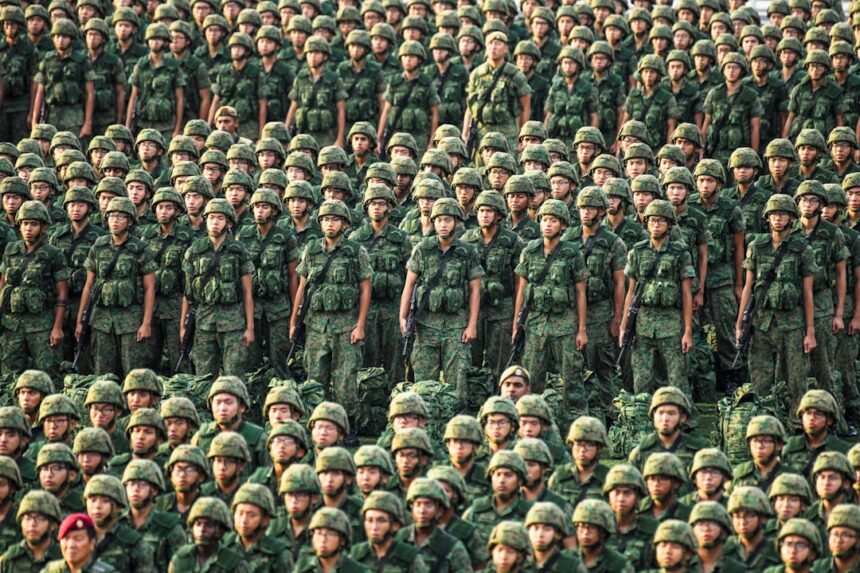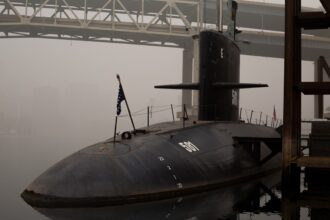In recent decades, the landscape of conflict and security in Africa has undergone significant transformation, marked by the emergence and proliferation of Private Military Companies (PMCs). These entities, often characterized by their provision of armed security services, have gained traction in a continent rife with political instability, civil wars, and terrorism. The rise of PMCs can be attributed to a confluence of factors, including the weakening of state military capabilities, the increasing demand for security in volatile regions, and the lucrative nature of the private security industry.
As African nations grapple with internal strife and external threats, PMCs have positioned themselves as viable alternatives to traditional military forces. The growth of PMCs in Africa is not merely a reflection of local needs but also a response to global trends. The privatization of military services has been a growing phenomenon worldwide, with companies offering specialized skills and expertise that often surpass those of national armies.
In Africa, this trend has been particularly pronounced, as governments seek to supplement their military capabilities without incurring the costs associated with maintaining large standing armies. The allure of PMCs lies in their flexibility, rapid deployment capabilities, and the ability to operate in environments where conventional forces may be constrained by political or logistical challenges. This has led to an increasing reliance on these companies by both state and non-state actors.
Key Takeaways
- Private military companies have seen a significant rise in Africa, with many operating in various countries on the continent.
- Private military companies play a significant role in African conflicts, often providing security and military services to governments and other actors.
- The use of private military companies in Africa has sparked controversies, with concerns about accountability, transparency, and human rights abuses.
- Private military companies have a notable influence on African governments, often shaping security policies and providing military support.
- The impact of private military companies on human rights in Africa is a subject of concern, with reports of abuses and violations in some cases.
The Role of Private Military Companies in African Conflicts
Private Military Companies have played multifaceted roles in various African conflicts, often acting as force multipliers for governments or factions engaged in warfare. Their involvement ranges from direct combat support to logistical assistance and training for local forces. In countries like South Sudan and the Central African Republic, PMCs have been deployed to provide security for vital infrastructure, protect key personnel, and even engage in combat operations alongside national armies.
This has allowed governments to project power and maintain control over contested regions without the political fallout that might accompany the deployment of national troops. Moreover, PMCs have also been instrumental in counter-terrorism efforts across the continent. With the rise of extremist groups such as Boko Haram in Nigeria and Al-Shabaab in Somalia, governments have turned to these private entities for their expertise in intelligence gathering, surveillance, and tactical operations.
The ability of PMCs to operate with relative autonomy allows them to navigate complex conflict environments where traditional military strategies may falter. However, this reliance on private entities raises questions about accountability and the long-term implications for state sovereignty and military professionalism.
The Controversies Surrounding Private Military Companies in Africa

The increasing presence of Private Military Companies in Africa has not been without controversy. Critics argue that the privatization of military functions undermines state authority and erodes the principles of accountability and transparency that are essential for democratic governance. The lack of oversight over PMCs can lead to abuses of power, as these companies often operate in a legal gray area where regulations are either weak or nonexistent.
Incidents involving human rights violations, such as extrajudicial killings or torture, have been reported, raising alarms about the potential for PMCs to act with impunity. Furthermore, the motivations behind the operations of PMCs can be called into question. While they often present themselves as providers of security and stability, their profit-driven nature can lead to conflicts of interest.
The pursuit of financial gain may incentivize PMCs to prolong conflicts or engage in unethical practices that exacerbate violence rather than resolve it. This duality complicates the narrative surrounding PMCs, as they can simultaneously be seen as necessary actors in conflict zones while also being implicated in perpetuating cycles of violence and instability.
The Influence of Private Military Companies on African Governments
| Country | Number of Private Military Companies | Impact on Government |
|---|---|---|
| Nigeria | 15 | Increased security but concerns about human rights abuses |
| Angola | 10 | Allegations of corruption and interference in politics |
| South Africa | 20 | Controversy over involvement in conflicts in other African countries |
The relationship between Private Military Companies and African governments is complex and often fraught with tension. On one hand, PMCs provide essential services that bolster state security apparatuses; on the other hand, their influence can undermine governmental authority and accountability. Many African leaders have turned to PMCs as a means to circumvent political constraints associated with deploying national forces.
This reliance can create a dependency that diminishes the capacity of state militaries and erodes public trust in government institutions. Moreover, the financial arrangements between governments and PMCs can lead to corruption and misallocation of resources. In some cases, contracts awarded to PMCs may lack transparency, resulting in inflated costs and subpar services.
This can divert funds away from critical areas such as education and healthcare, exacerbating existing socio-economic challenges. As governments increasingly rely on these private entities for security, questions arise about who truly holds power within these states and whether citizens are being adequately represented in matters of national defense.
The Impact of Private Military Companies on Human Rights in Africa
The involvement of Private Military Companies in African conflicts has significant implications for human rights across the continent. Reports of human rights abuses linked to PMC activities have raised concerns among international organizations and advocacy groups. Instances of excessive use of force, unlawful detentions, and violations against civilians have been documented, often occurring in contexts where oversight is minimal or absent altogether.
Furthermore, the presence of PMCs can exacerbate existing tensions within conflict-affected regions. Their operations may contribute to an environment of fear and mistrust among local populations, particularly when communities perceive these companies as mercenaries acting solely for profit rather than protectors of peace.
This dynamic can hinder reconciliation efforts and perpetuate cycles of violence, as grievances against PMCs may fuel resentment towards both private actors and state authorities that employ them.
The Economic Implications of Private Military Companies in Africa

The economic landscape surrounding Private Military Companies in Africa is multifaceted, encompassing both opportunities and challenges. On one hand, the growth of PMCs has created jobs and stimulated local economies through contracts for services ranging from security provision to logistical support. In regions where formal employment opportunities are scarce, these companies can offer livelihoods to individuals who might otherwise be drawn into conflict or criminal activities.
Additionally, the influx of foreign investment associated with PMC operations can contribute to infrastructure development and economic growth. However, the economic implications are not uniformly positive. The reliance on PMCs can lead to a distortion of local economies, particularly when foreign companies dominate the market at the expense of local businesses.
Moreover, the prioritization of security over social services can divert resources away from essential sectors such as education and healthcare. This imbalance can exacerbate existing inequalities and hinder long-term development efforts. As African nations navigate the complexities of engaging with PMCs, they must carefully consider the broader economic ramifications of their involvement.
The Legal Framework Governing Private Military Companies in Africa
The legal framework governing Private Military Companies in Africa is often fragmented and inconsistent across different countries. While some nations have enacted legislation aimed at regulating PMC activities, many others lack comprehensive legal structures to oversee their operations effectively. This regulatory gap creates an environment where PMCs can operate with minimal oversight, raising concerns about accountability for human rights violations and other misconduct.
International law also plays a role in shaping the legal landscape for PMCs operating in Africa. Various treaties and conventions address issues related to mercenarism and private military services; however, enforcement mechanisms remain weak. The absence of a unified legal framework complicates efforts to hold PMCs accountable for their actions and protect the rights of individuals affected by their operations.
As the presence of PMCs continues to grow across the continent, there is an urgent need for African governments to collaborate on establishing robust legal standards that ensure transparency and accountability.
The Relationship Between Private Military Companies and International Organizations in Africa
The relationship between Private Military Companies and international organizations operating in Africa is characterized by both collaboration and tension. On one hand, international organizations often rely on PMCs for security services when deploying personnel to conflict zones or fragile states.
However, it also raises ethical questions about complicity in potential human rights abuses committed by these companies. Moreover, international organizations face challenges in navigating the complexities associated with PMCs’ involvement in conflicts. While they may benefit from the expertise that PMCs bring to security operations, they must also grapple with public perceptions regarding their association with private entities that operate outside traditional military frameworks.
Striking a balance between ensuring safety and upholding human rights standards remains a critical concern for international organizations as they engage with PMCs in Africa.
The Future of Private Military Companies in Africa
The future trajectory of Private Military Companies in Africa is likely to be shaped by a combination of geopolitical dynamics, domestic governance issues, and evolving security needs. As conflicts continue to emerge across the continent, it is probable that governments will increasingly turn to PMCs as a means to bolster their military capabilities without incurring significant political costs associated with deploying national forces. This trend may lead to further entrenchment of PMCs within African security frameworks.
However, this reliance on private entities also presents challenges that cannot be overlooked. The potential for human rights abuses, lack of accountability, and erosion of state authority are pressing concerns that must be addressed if PMCs are to play a constructive role in African security landscapes. As stakeholders engage in discussions about the future role of PMCs, there is an opportunity to advocate for stronger regulatory frameworks that prioritize human rights protections while ensuring effective security provision.
The Ethical Considerations of Using Private Military Companies in Africa
The ethical considerations surrounding the use of Private Military Companies in Africa are complex and multifaceted. At the core lies the question of accountability: who is responsible when private actors engage in conduct that violates human rights or exacerbates conflict? The profit-driven nature of PMCs raises concerns about their motivations and whether they prioritize financial gain over ethical obligations to protect civilians and promote stability.
Additionally, there is an ethical imperative for governments engaging with PMCs to ensure that their actions align with international human rights standards. The potential for abuses committed by these companies necessitates robust oversight mechanisms that hold them accountable for their actions while safeguarding vulnerable populations from harm. As discussions about ethics continue to evolve within the context of private military services, it is essential for stakeholders—governments, civil society organizations, and international bodies—to collaborate on establishing clear ethical guidelines that govern PMC operations.
The Global Perspective on Private Military Companies in Africa
The phenomenon of Private Military Companies operating in Africa cannot be viewed in isolation; it is part of a broader global trend towards privatization of military services. As conflicts become increasingly complex and multifaceted worldwide, many nations are exploring alternative security solutions that include engaging with private entities. This global perspective highlights both opportunities for collaboration among nations facing similar challenges as well as risks associated with unregulated PMC activities.
Internationally, there is growing recognition of the need for comprehensive regulatory frameworks governing PMCs’ operations across borders. Efforts to establish norms around accountability and transparency are gaining traction within global governance structures; however, implementation remains uneven across different regions. As African nations navigate their relationships with PMCs amidst evolving geopolitical dynamics, they must remain cognizant of global trends while advocating for policies that prioritize human rights protections and sustainable development outcomes within their own contexts.
In conclusion, while Private Military Companies offer certain advantages in addressing security challenges across Africa, their presence raises significant ethical dilemmas and practical concerns that must be carefully navigated by governments and international organizations alike. As this complex landscape continues to evolve, it will be crucial for stakeholders at all levels—local communities included—to engage critically with the implications surrounding PMCs’ roles within African societies.
Private military companies (PMCs) have increasingly become a significant presence in Africa, often stepping into roles traditionally held by national military forces. These companies are involved in various operations, ranging from security and logistics to direct combat roles. The rise of PMCs in Africa raises questions about accountability, sovereignty, and the impact on local conflicts. For a deeper understanding of the dynamics and implications of PMCs in Africa, you can explore a related article on this topic by visiting In The War Room. This resource provides insights into the complex interplay between private military entities and African nations, shedding light on both the opportunities and challenges they present.
WATCH THIS! From Tehran to Blackwater: The Real Story
FAQs
What are private military companies (PMCs)?
Private military companies (PMCs) are private companies that provide military and security services to governments, non-governmental organizations, and other private entities. These services can include combat operations, training, logistics, and security consulting.
What role do private military companies play in Africa?
Private military companies in Africa often provide security and military services to governments, multinational corporations, and international organizations. They may be involved in peacekeeping operations, counter-terrorism efforts, and protecting critical infrastructure.
Are private military companies regulated in Africa?
Regulation of private military companies in Africa varies by country. Some African countries have laws and regulations governing the activities of PMCs, while others have little to no oversight. The lack of regulation has raised concerns about accountability and human rights abuses.
What are some examples of private military companies operating in Africa?
Some well-known private military companies operating in Africa include Executive Outcomes, Aegis Defence Services, and Academi (formerly known as Blackwater). These companies have been involved in various security and military operations across the continent.
What are the criticisms of private military companies in Africa?
Critics of private military companies in Africa argue that they operate with little oversight and accountability, leading to human rights abuses, corruption, and exacerbating conflicts. There are also concerns about the potential for PMCs to undermine state sovereignty and contribute to instability.




